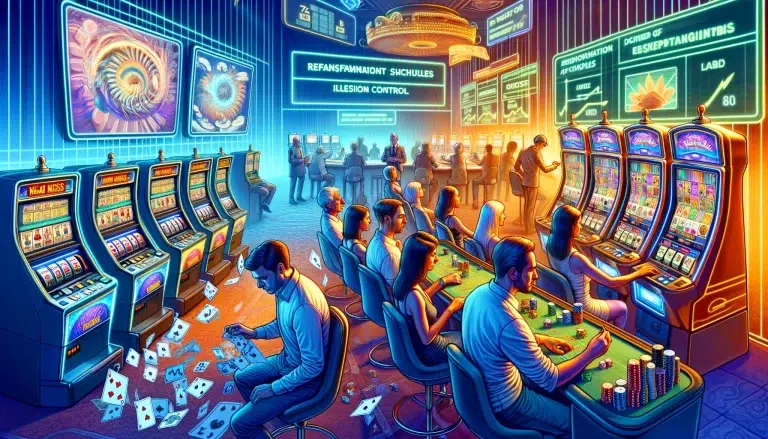Casinos are designed to be thrilling, engaging, and sometimes, incredibly frustrating. One of the most intriguing psychological phenomena that contribute to this mix of emotions is the “near miss” — when a player comes tantalizingly close to winning, but ultimately falls short. Understanding the psychology of near misses can shed light on how these experiences affect player behavior and influence gambling habits. This article explores the powerful effect of near misses in casino games and their role in keeping players engaged.
What is a Near Miss?
A near miss occurs when the outcome of a game is close to a winning result but ultimately does not result in a win. For example, in a slot machine, a near miss might be two jackpot symbols and a third symbol just one position off from completing the winning line. These outcomes are engineered to appear almost successful, creating a sense of “so close, yet so far.”
The Psychological Impact of Near Misses
Dopamine Release
Near misses trigger a release of dopamine in the brain, similar to the release experienced during a win. This chemical response creates a feeling of excitement and anticipation, encouraging players to continue gambling in the hope of achieving an actual win. The sensation of nearly winning can be just as compelling as the actual win, driving the desire to keep playing.
The Illusion of Control
Near misses can give players an illusion of control over the outcome. This cognitive bias makes players believe they were close to winning because of their skill or strategy, even in games of pure chance. The illusion of control increases player engagement, as they feel their actions directly influence the results and that a win is within reach.
Persistence and Motivation
Studies have shown that near misses increase players’ motivation to continue gambling. The frustration and excitement generated by near misses create a psychological state where players are more likely to persist in their efforts. This increased persistence can lead to longer gambling sessions and higher expenditures.
How Casinos Utilize Near Misses
Slot Machines
Slot machines are designed to frequently produce near misses. The random number generator (RNG) ensures that outcomes are random, but the physical design and programming of the reels can be manipulated to create near-miss scenarios more often than they would occur by chance alone. This keeps players engaged and encourages them to keep spinning the reels.
Lottery and Scratch Cards
Near misses are also common in lottery games and scratch cards. A ticket that reveals two matching numbers or symbols and a third just off creates the same psychological effect as a near miss in slot machines. This increases the likelihood that players will purchase additional tickets in the hope of achieving a win.
Table Games
In table games like roulette or blackjack, near misses can be engineered through the design of the game and the way outcomes are presented. For example, in roulette, the ball landing in a number adjacent to the player’s chosen number can be seen as a near miss, encouraging further bets.
Ethical Considerations
Responsible Gambling
While near misses are an effective tool for keeping players engaged, they also raise ethical concerns. The psychological impact of near misses can contribute to problem gambling by encouraging players to chase losses and continue gambling beyond their means. Casinos and game designers must balance creating engaging experiences with promoting responsible gambling practices.
Transparency and Fairness
Casinos should ensure that players are aware of the nature of near misses and how they are used in games. Transparency about game design and outcomes can help maintain trust and fairness in the gambling industry. Regulatory bodies play a crucial role in overseeing these practices and ensuring that games are designed ethically.
Conclusion
The psychology of near misses is a powerful factor in casino game design, significantly impacting player behavior and gambling habits. By understanding how near misses influence players, casinos can create more engaging experiences while also recognizing the importance of promoting responsible gambling. As the industry continues to evolve, balancing player engagement with ethical considerations will be key to sustaining a fair and enjoyable gaming environment.

David Garato is a luminary in gaming journalism, renowned for peeling back the curtain on the gaming world with his witty and insightful commentary. A decade into weaving stories from the pixelated edges of indie games to the expansive universes of AAA titles, David’s work is a thrilling blend of analysis and adventure. When not writing, he’s live-streaming, sharing his gaming exploits with an engaged and growing audience. David doesn’t just write about games; he lives them, making him a trusted guide in the gaming community.


